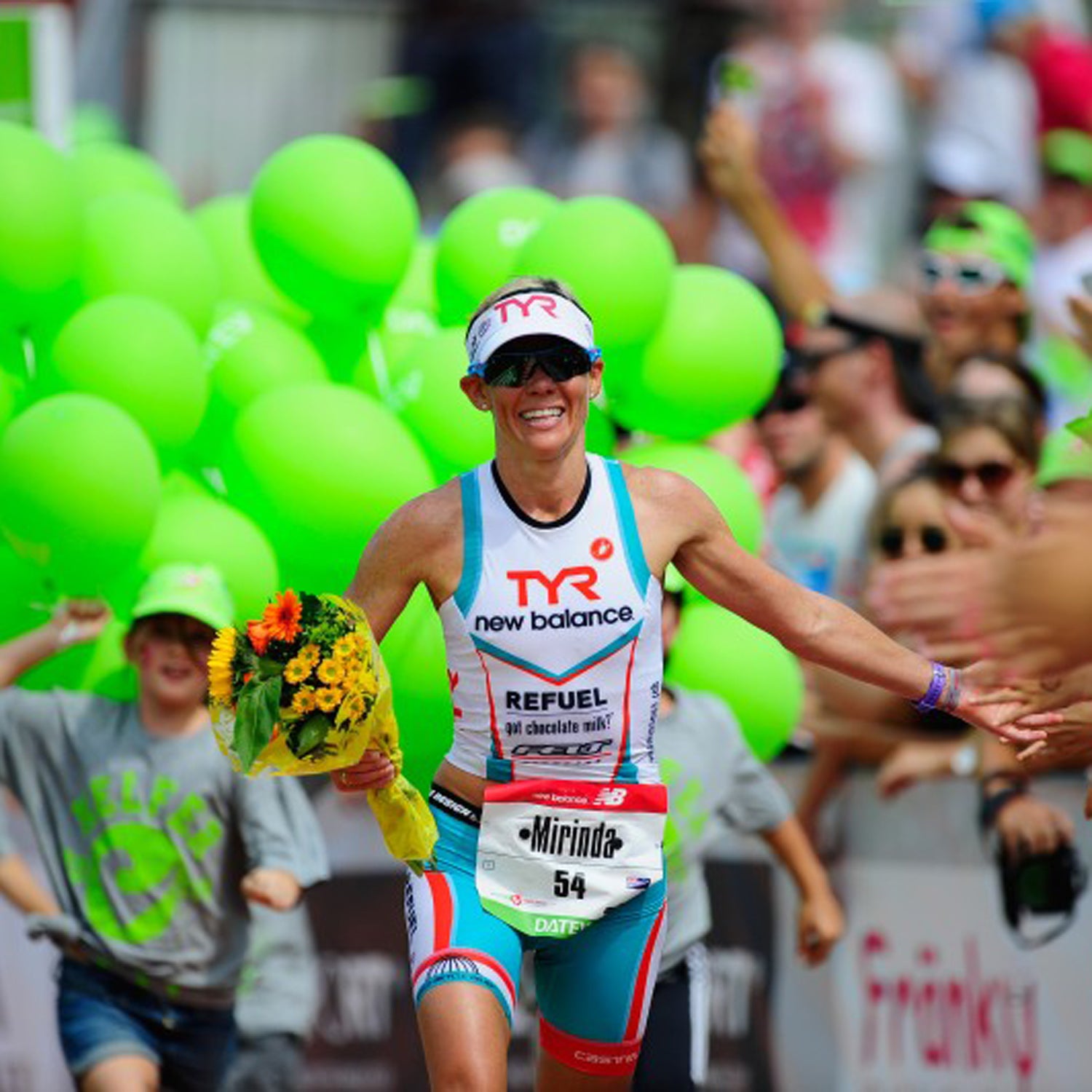Mirinda Carfrae, also known as “Rinny” and “Mighty Mouse,” is a , but it’s her exceptional ability to dig deep and suffer at the end of nine-hour races that makes the 34-year-old Australian among the best female long-course triathletes on the planet. In events where it is common for competitors to slow down, stumble, and, in some cases, literally crumble from fatigue, Carfrae is known for racing like a metronome. She’s won over 20 half-Ironman races and is a three-time Ironman world champion at Kona, where she holds both the course record (8:52:14) and marathon record (2:50:26). Carfrae is to defend her most recent world championship on Saturday, October 10.
Develop Holistic Fitness
Training across multiple sports not only helps build physical fitness in ways that contribute to one another, but the variety helps prevent burnout too. That’s the great thing about triathlon. Each discipline (swim, bike, run) benefits the others.
Don’t Shun the Treadmill
A lot of people can’t stand the treadmill, but I love it because it’s quick, efficient and let’s me control my pace.
Ditch Your Rigid Diet
I don’t follow any strict diet but I do tend to eat pretty healthy foods, things like organic meats, vegetables, fruits, lots of quinoa and rice, and hummus. After a race, however, all bets are off. I love a big dirty burger and some fries.
Bring On the Drinks and Ice Cream—Just Not Always
I definitely believe in treats: I love chocolate, lollies, and ice cream…you’ll always find a few flavors of Ben and Jerry’s in my freezer. But six to eight weeks out from Kona, I give up alcohol and ice cream.
Supplements Can Help, but Don’t Go Nuts
Sometimes the body needs a little help when it’s under a heavy workload. I take co-enzyme Q10, magnesium powder, a multivitamin. I also drink beet juice–but only before races. My sister–she’s a naturopath–makes me take all this.
Recovery Means Sleep
Sleep is the most important thing you can do for recovery. And it’s free. In a 24-hour period, I’ll get 9-10 hours. Usually, I’ll sleep for 7-8 hours at night and then take a 2-hour nap during the day, but sometimes I’ll sleep for 10-11 hours straight.
Develop Mental Fitness Too
I definitely visualize races, especially the parts that are going to be the toughest. I know from experience it’s going to hurt and be uncomfortable, but if you’re prepared for that mentally, the suffering isn’t as bad.
Test Yourself in Training
The more opportunities you have to really test your limits, the better you become at it, simply because you gain the confidence that you can push through.
When the Going Gets Tough, Focus On Your Body
I go through a mental checklist. Is everything doing what it should do? How’s my form? How’s my cadence? How’s my arm swing? How’s my belly? Am I hydrated enough? Have I eaten enough? I’m very pragmatic, just focusing in on the physical details in the moment.
Run Your Own Race
Try not to think too much about the other people out there, or too much about the finish line until it’s truly is within reach. Mostly it’s just about really staying in that moment and giving your absolute 100 percent; hopefully that’s enough!
The Best Goal? Getting Better
People often ask me if I get tired of it, and honestly, the answer is not yet. I keep coming back to Kona because I believe I can still do better there, and that is what drives me. I want to see how fast I can go. I want to see if I can have my perfect race. And while I’ve had some amazing days out there, I still think there’s more I can do.


